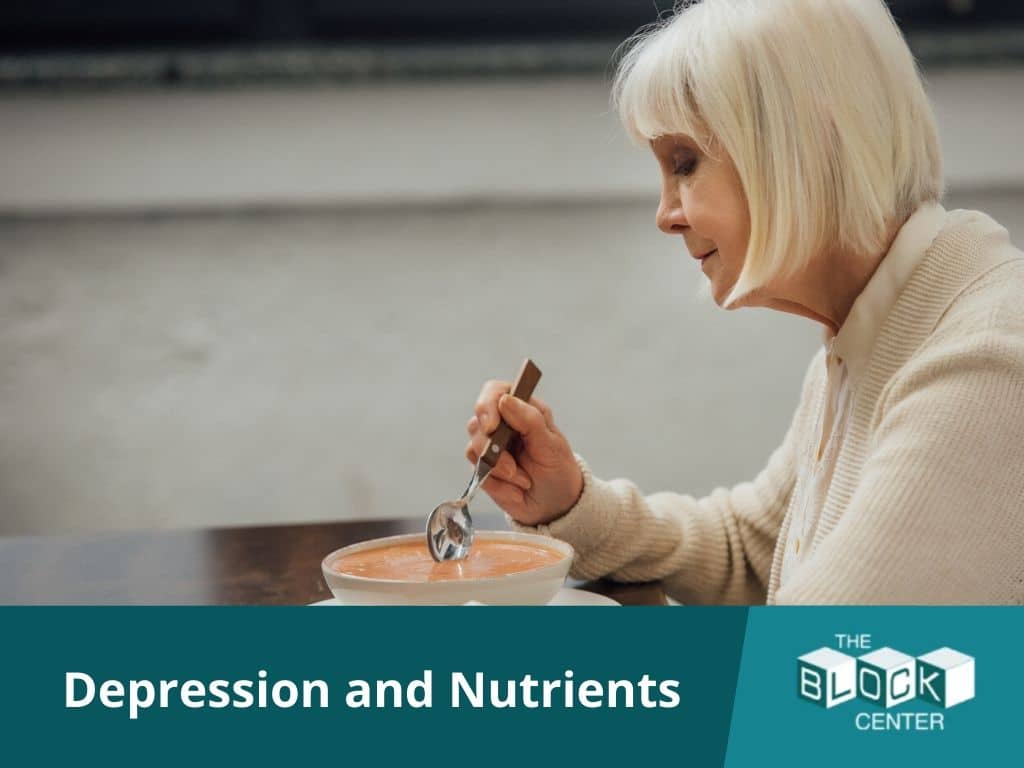ADHD-What Parents Can Do
September 27, 2011/
Parents Can Take Control
As a parent you have choices. If your child’s teacher is implying that she thinks your child has ADHD and suggests you take her to a doctor for testing, know that you have options. The teacher is not a doctor. ADHD is considered a psychiatric disorder that falls into the realm of medicine. The usual treatment for ADHD is a prescription drug. Not just any prescription drug, but a Class II controlled substance that is highly addictive and can cause serious and life-threatening consequences.
The ADHD Label
Do not take this lightly. Acquiring an ADHD diagnosis should be taken very seriously. The teacher does not know the side effects of these drugs. She did not go to medical school. She may just need special tuition for your child and to be quiet in class and pay attention. Somewhere along the line, she has learned that kids who can’t focus or behave are ADHD and need a drug. This could not be further from the truth. Even if you take your child to a doctor on your teacher’s recommendation, the doctor may not take the time to do a complete
and thorough medical and educational evaluation of your child. The doctor may just take the teacher’s word on it and diagnose your child with ADHD and prescribe one of those controlled substances. Just because the doctor does that, doesn’t mean that is what your child needs.
The Problem with ADHD Testing
Another scenario is for the school personnel to ask to test your child. Just because the school wants to do the testing doesn’t mean you have to go along with it. You do not have to sign the papers at your child’s school allows them to “ test” your child. If the school wants to test a child for learning disabilities, that would be beneficial. But parents can limit testing to only that. You do not have to sign whatever the school asks for, giving them the opportunity to evaluate your child any way they wish. Some parents officially inform the school personnel that they do not allow the school to test their child psychologically.
Understand that any “ testing” for ADHD is completely subjective and is only based on a checklist of symptoms. It is not a real objective test.
Testing the Teachers
Some of the parents of my patients have told the teacher that their child was prescribed the drugs and let the teacher think the child is taking them even though they are not. Ninety percent of the time, the teacher has reported that the child is doing so much better on the medication. It appears this is a placebo for the teacher. If the teacher thinks the child is better when the child is not on drugs yet the teacher thinks she is, then why bother giving the child the drugs and risking the potentially life-threatening side effects?.
Find the Underlying Causes of the ADHD Symptoms
Parents can select a medical professional who understands the relationship between allergies, heavy metals, nutrition, sugar, and learning problems. If you cannot find such a professional in your area, here are some things you can try yourself to help improve your child’s attention and behavior without drugs.
1. Remove sugar from your child’s diet. According to the Journal of Pediatrics, sugar can affect the behavior of normal children. Low blood sugar can occur as a response to eating sugar or from not eating enough protein. Low blood sugar can cause behavior problems and inattention. Make sure the teacher is not giving out candy as rewards. Make sure your child cannot purchase candy and sodas at school. Remove the sugary cereals and make sure your child eats protein for breakfast. Proteins include meats, cheese, nuts, seeds, and eggs. When choosing bread, pasta, and cereal products, be sure to select whole-grain products. Give your child a protein snack mid-morning and mid-afternoon. This can be a handful of nuts or nut butter on a whole grain bread or cracker.
2. Do not allow the school personnel to label your child as ADHD. School personnel does not have the qualifications to do a thorough medical evaluation. Many states have passed resolutions recommending teachers and other school personnel recognize that they do not have the training and knowledge to recommend drugs. Some states have recommended that school personnel recommends only proven, safe methods such as vision testing, phonics, allergy testing, nutrition, and other proven techniques. Find out what your state’s guidelines are by contacting the state board of education.
3. Give your child vitamins and minerals. Most children s diets are lacking in fruits and vegetables. Few people eat a diet that is adequate in vitamins and minerals. Nutrients are needed for all of our biochemical processes. If we do not have them available our body and mind cannot work properly. Certain nutrients have been found to directly affect behavior, attention, and learning.
Magnesium deficiency in children caused fidgeting and learning difficulties.
Vitamin B6 was found to work better than Ritalin in one study of hyperactive
children.
Niacin was found to help hyperactivity, poor school performance and
social relationships, Zinc deficiencies caused hyperactivity.
The essential fatty acid deficiency was found in boys with more temper tantrums and sleep problems.
DMAE, a neurotransmitter precursor, has been used for years to improve
behaviors and concentration.
Vitamin B12 has been used to improve memory loss and moodiness.
4. Treat allergies. According to the medical journal, The Annals of Allergy, children with allergies are less successful in school in all areas than children who do not have allergies. The study concluded that allergies do cause learning impairment that can be so severe that the writers recommended that students be excused from test-taking during their allergy season. The antioxidant, Quercetin has shown to be helpful in treating inhalant allergies.
5. Consider food sensitivities. Food sensitivity reactions can affect how we think, feel and act. The most likely food sensitivity is the foods the child likes the best.
6. Have your child evaluated for learning disabilities or learning differences. There are many different individuals that can test your child for learning problems. I recommend that my patients be evaluated for learning problems only–no psychiatric disorders. Too often I have found that when the tester does not find a specific learning problem, the child then receives an ADHD label. Often the child is very smart and is able to compensate for the learning problem. If the tester does not evaluate the child for learning style, the problem may be missed. Many children that have been labeled ADHD simply have a different learning style than is being used in the classroom. The child then has difficulty paying attention and may act out. This does not mean the child has ADHD. Learning differences and learning disabilities can be treated. The learning problem should be corrected, not covered with psychiatric drugs.
7 . Make sure your doctor has considered medical conditions such as thyroid problems and anemia. These conditions can interfere with a child’s ability to learn and focus. Heavy metal toxicity can cause problems with learning. Everyone is aware of the seriousness of lead poisoning, but mercury toxicity can be serious as well. Mercury is a neurotoxin. That means it is toxic to the nervous system. Many children s vaccinations contain mercury and aluminum. Aluminum has been associated with neurological problems also. The best test for heavy metal toxicity is a urinary or fecal challenge test, giving some type of chelating agent to help grab the metals and pull them out. A blood test for heavy metals is rarely positive.
8. Be your child’s advocate. I always tell parents to look for the good in the child. Rather than pointing out problems your child has or has had in the past, point out to the teacher the things your child can do well. If the teacher thinks your child is smart and can do well in school, then the teacher may see only a smart child who does well in school. Often our expectations are what we see and what we get.
If children are given a complete physical exam, lab tests, allergy testing, and evaluated for learning problems, I believe most doctors, teachers, and parents would find as I have that ADHD is always a misdiagnosis.










I agree with your 8 recommendations 100%. I’m not sure which is the more important of your recommendations, it is surprising how often parents do make the plight of their child worth rather ten easier!
However, strongly believe that you have left out a very important underlying reason for ADHD! Dyspraxia (Apraxia). In my experience it is around 80% the true problem an ADHD sufferer has. Dyspraxia (Apraxia) may be helped and the ADHD will disappear. I know this for sure.
At Jays’ Education we provide help and I am inviting you (author of this excellent article) to contact us. Learning Difficulties, problems, strategies, we do help! Tom
Great Article! Every time I think about a child (person) with a learning disability I ask the question: Is drugging the child a vitalistic approach? Will that drug raise that child’s health so that he / she can be more, do more and achieve a greater impact on fellow human beings. The research is out – and the answer is NO. You must understand that a child that cannot learn will not be any brighter while being drugged. Interestingly, MD’s in the US prescribe five times the quantity of stimulants for children as MD’s in other countries. Many parents worry about drugging their children for multiple reasons. Their thoughts “Is there another way?” Absolutely! Chiropractic offers a child the ability to be at their best without drugs. As a parent I urge you to get your child’s spine evaluated to see if chiropractic can help your child. When as humanitarians are we going to stop lowering self achievement and start to deal with the cause of the problem? Healthier people for a healthier planet.
I am dealing with this this year. My son is 6 and in the first grade. All the “problems ” that are being complained off by his current teacher, were the same “issues” he had with his kindergarten teacher, and she was able to handle them without issues, and he graduated on grade level and improved alot during the year! His kindergarten teacher told us multple times that he didn’t have any sort of attention issues, nor did she feel he needed to see a doctor. Trust us we asked multiple times about this last year. This year, just 2 short wks after school began, his current teacher sent home the vanderbilt test for ADHD! I was beyond mad! We had started the testing last year, and it was a struggle and a fight to get it completed, took the entire year. And we had to go through it all again. He has been diagnosed by the pyschologist the school appointed to have Asperger’s syndrome. He also has a secondary diagnosis of ADHD-inattentive type. Meaning he has slight lack of focus but not the impluse control, hyperactivity, defiance behaviour seen in true ADHD. It has been explained to teh school that Aspies can mirror ADHD children and many times have been misdiagnosed as ADHD before the asperger’s diagnosis is made. My son is a typical aspie. Today was the final straw with his teacher when she stated that he’s not learning, or at least not showing her that he’s learning and if “something doesn’t change and he wont focus then it will only get worse for him” She has been pushing for us to see if medication would be beneifical, and has balked at every effort on my part, not to mention his doctor’s part to make 100% sure medication is warranted. She even said tonight that “a trial of medication could rule out certain things, if it is not true ADHD then the medication wont work, so you will know” yea sure, not your kid, so what do you care if he just tries it, right? you don’t have to deal with teh fall out! It seems that ever since the ADHD inattentive type was put as a secondary diagnosis, that is all his teacher and the school are willing to see! And they all have given their little antidotal stories of how it helped their children, their grand children, their friend of a friend of their grandmother’s kid. I’ve heard the “This is not coming from a teacher but from a parent” speech a million times and it is all pointing towards the same thing. I’ve heard the school personel say “IF you decide to go to medication, I think it would help him so much and he would blossom and he would be a changed kid” mind you they are not talking about giving him any other services, nor any other testing, or any other help even if we do choose medication! Even though I’ve said more times then I care to admit that drugs are not a magic bullet and aren’t going to change him from a straight F student into rainman. all I hear is “yea, I know, but if we could get him to focus, then we can go back and help him catch up” Yea, well why can’t you do that now? Oh wait, because he’s not on medication! duh! My husband and I both are beyond tired of this run around and the “pop the magic pill” song and dance the school and his teacher wants to dish out. His teacher actually said “I’ve delt with kids with aspergers, and they didn’t have the problem of just totally shutting down and refusing to do the work, or at least the one I did teach didn’t have that issue” since when does teaching 1 child with aspergers make you an expert on all kids with this disorder???????? I’m sorry, but I was in a mechanic shop when they were fixing my brakes once, does that mean I’m now an expert on breakss on all cars now? I don’t know what else to do and we are seriosly thinking of yanking him out of school and homeschooling him. seriously, we couldn’t do anny worse,
Hi Beth, Thanks for your comments. Dr. Block feels strongly that children should not be labeled ADHD as it is a subjective psychiatric label and does not address the real cause of the symptoms. Every child deserves a thorough medical and educational evaluation to determine the cause. She has had much success doing this and always finds a reason for the symptoms and has never had to diagnose anyone with ADHD or prescribe a psychiatric drug for the symptoms. That is why she developed her 5-day and 2-day in-office programs and her Breaking Free from ADHD Home Program. Parents deserve all the information and it isn’t fair for teachers and school personnel who are not in the medical field to pressure parents into drugging their children, especially since the side effects of the drugs can be addiction, heart attack and even death. Children have the right to an education even when parents choose not to drug them.
Becky, Spend a day or a week if you can in the classroom. Particularly if you are a “sensitive” type. (see The Highly Sensitive Child) and you will understand why a child shuts down or acts out!
Hugs, from a parent with a 6 yr old child (who started by shutting down, then turned to acting out as you get way more attention that way!)
Good luck advocating!
oops, BETH!! :) must be my ADHD! lol